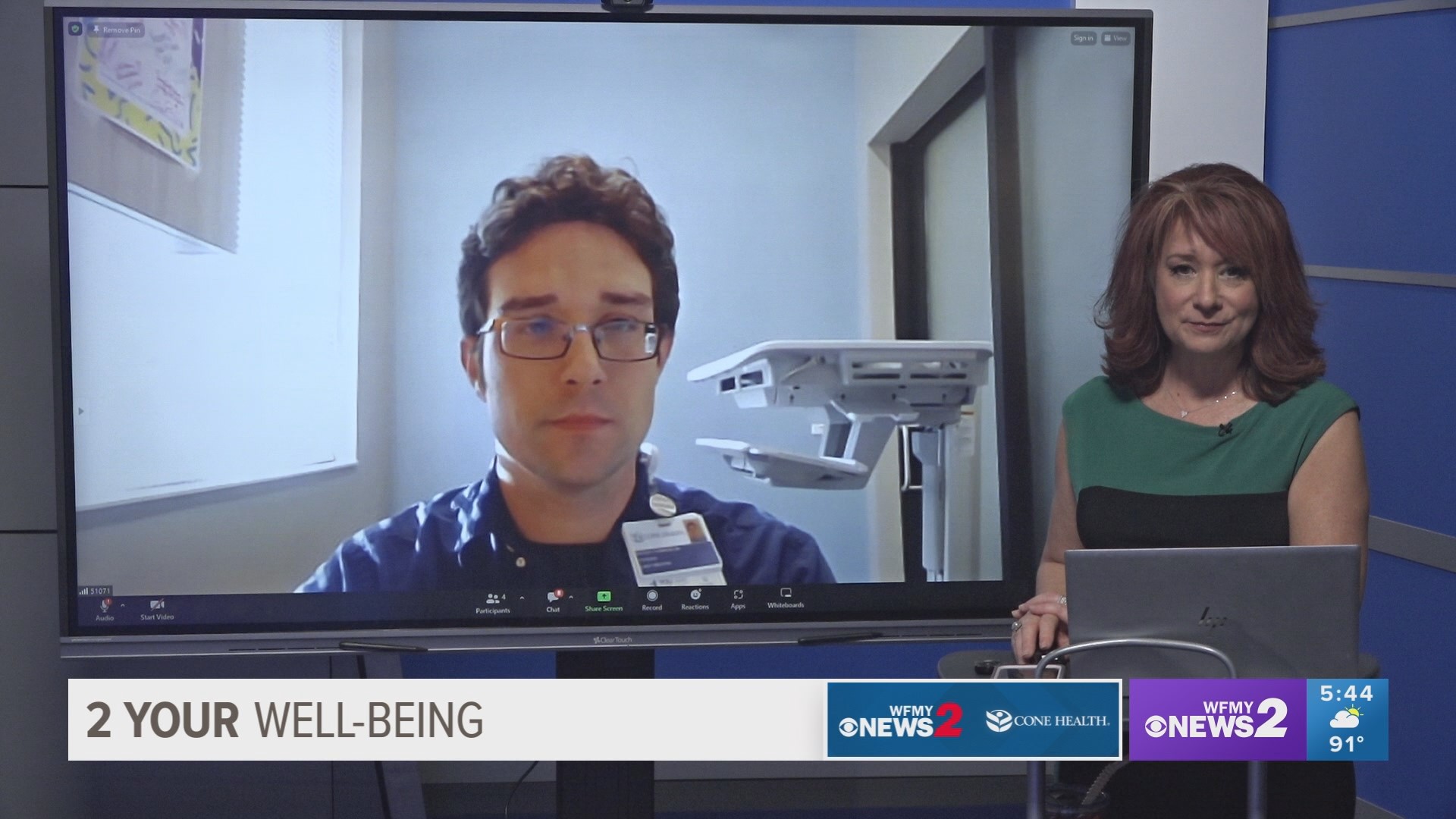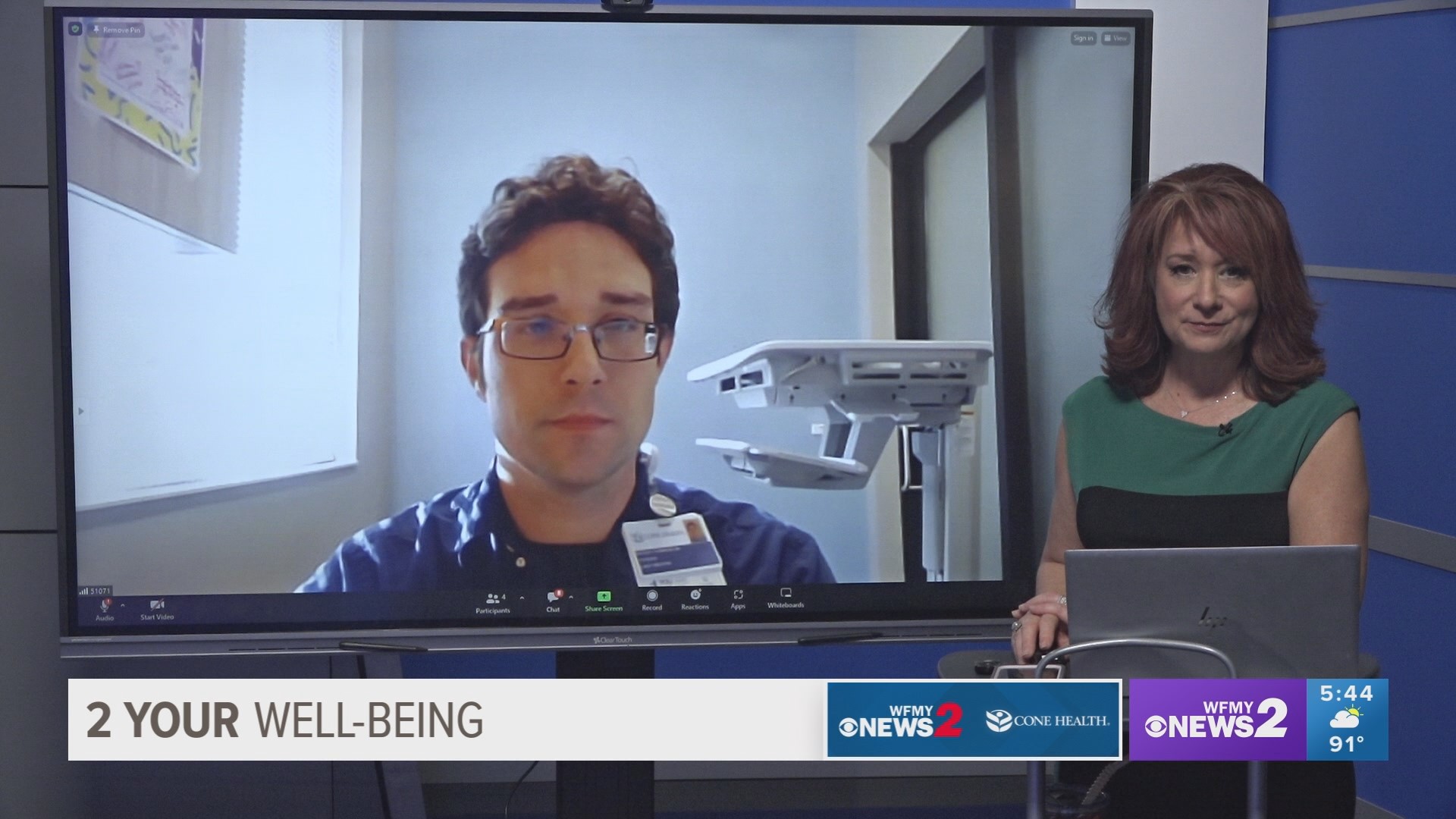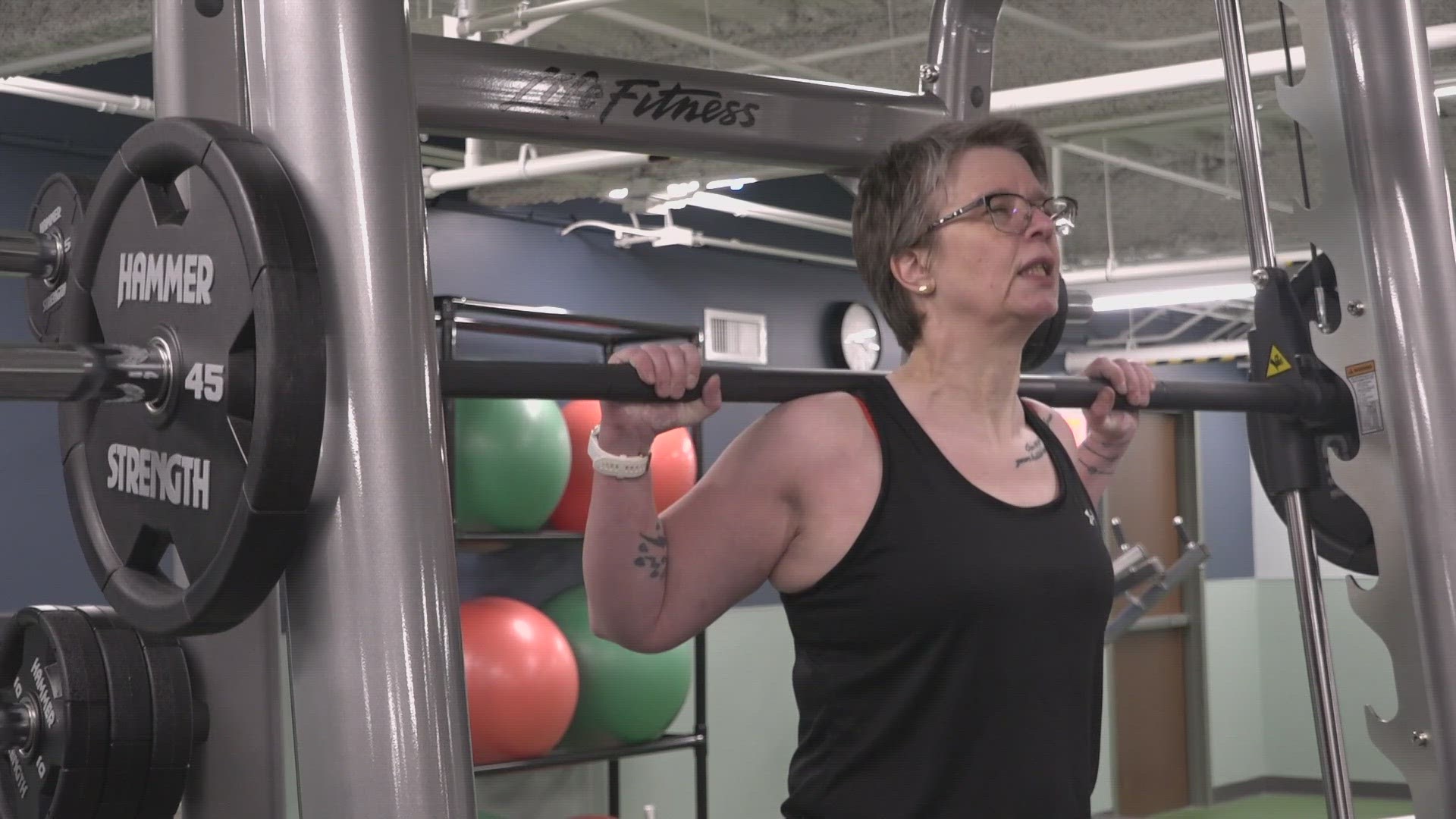GREENSBORO, N.C. — Kids are back in school. You’ve checked off the to-dos on their health checklist -- but how is your checklist looking? Parents and grandparents -- don’t forget to take care of your health too.
In this 2 Your Well-Being, Dr. Brad Thompson with LeBauer Healthcare at Grandover Village joined us to talk about the importance of regular checkups and health screenings. It all starts with making sure you have a primary care doctor who can help you stay ahead of health concerns.
“Most of these (screenings), we’d like to have come through us, so we’re a part of your care and we know where it’s going,” Dr. Thompson said.
He said he realizes some people might think of it as just one more thing to schedule in their busy lives - but it's really important.
"The main point of these screening tests is to find disease early, before it’s a problem. A lot of times when these diseases occur, such as heart disease, it’s already too late. You might be presenting symptoms of a heart attack or maybe you have some changes in your stool and colon cancer is more advanced," he said.
Your Health Screenings Checklist: What should everyone get screened for and at what age?
- All ages – Physical exam (height, weight, and body mass index); blood pressure; vision, hearing, and dental; skin exam; immunizations check; mental health evaluation
- Age 15+ -- HIV screening
- Age 35+ -- Cholesterol screening and diabetes check
- Age 40+ -- Heart Scan Calcium Test for those with risk factors
- Age 45+ -- Colon cancer screening
- Age 50+ -- Lung cancer screening for those with qualifying smoking history
Health screenings for women
- Age 21+ -- Breast exam, pelvic exam, cervical cancer screening
- Age 40+ -- Mammogram and ovarian cancer screening
- Age 65+ -- Osteoporosis screening (bone density scan)
Health screenings for men
- Age 20+ -- Testicular exam
- Age 55+ -- Prostate cancer screening
- Age 65+ -- Abdominal aortic aneurysm screening for those with smoking history
Cone Health's 15 steps to help you achieve a long and healthy life
- Schedule your annual checkup. Your primary care doctor can help you stay ahead of health concerns and find solutions to keep you well. If you don't have a primary care doctor, you can find one here.
- Know your numbers. Knowing your blood pressure and cholesterol rates can put you on a path toward wellness. Ask your doctor to put these numbers in writing for you. Learn more about high blood pressure and how to manage hypertension here.
- Get your recommended screenings. The earlier a health issue can be spotted, the better it can be treated.
- Take your prescribed medications. Conditions like high blood pressure and diabetes can be treated with lifestyle changes and prescribed medicines. Post a reminder to take your medicine somewhere you'll see it. See all of Cone Health's community pharmacy locations here.
- Stay connected with your doctor. Schedule and attend your follow-up appointments.
- Protect yourself with vaccinations. Ask your doctor what vaccinations may benefit your health and reduce your risk of the flu, pneumonia, shingles, or other illnesses.
- Exercise regularly. Get at least 150 minutes of moderate activity each week to stay fit.
- Eat healthy foods. Load up on fruits, vegetables, lean proteins, and whole grains. Avoid processed foods when possible.
- Sleep well. Adults need 7-9 hours of sleep a night for the best physical and mental health.
- Reduce stress. Try prayer, meditation, or mindful relaxation. Make time for family, friends, and healthy relationships. Cone Health has more tips on managing stress here.
- Take care of your mental health. You can call Cone Health's 24-hour mental health/substance abuse HelpLine at 336-832-9700 if you are struggling.
- Drink a lot of water. Have 6-8 glasses of water a day or more if you weigh more than 160 pounds or exercise.
- Practice good oral health. Regular brushing and flossing will reduce your heart disease risk.
- Don't smoke. Both smoking and vaping damage heart and vascular health. It can also lead to serious lung illnesses.
- Avoid alcohol or drink in moderation. Drinking too much can increase serious short and long-term health risks.



